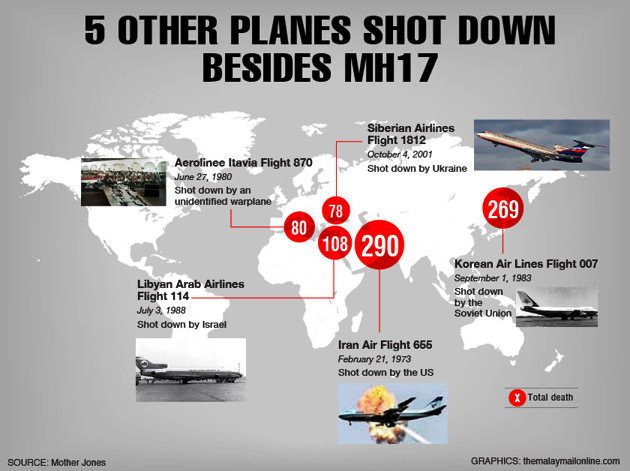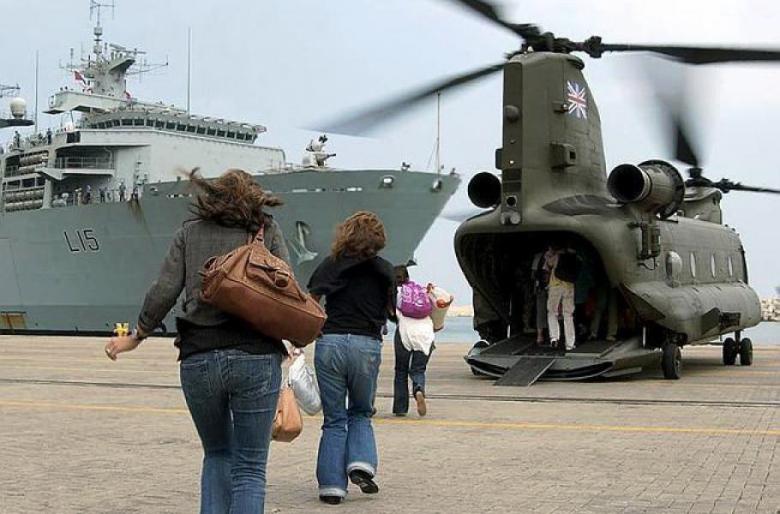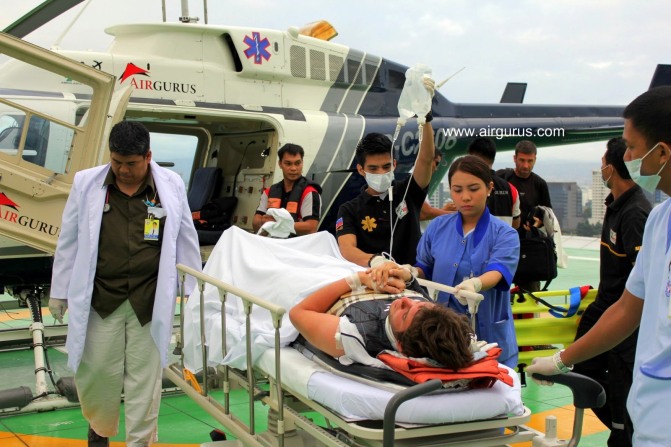Source: http://dailym.ai/1yUKWnQ#i-2ba9f4cc7f12cb47
The downing of Malaysia flight MH17 is an unprecedented attack on commercial aviation. I posted news report on tweeter as soon as the news broke, but waited to write about until there was at the very least some intelligent assessment of exactly what happened. The threat of a surface-to-air missile used by terrorist to target a commercial jetliner is not an unthinkable scenario that has not been consider my risk analyst before. In fact over the last 50 years there have been many other similar incidents which have occurred over conflict zones around the world. I can also recall at least one scenario which worried intelligence authorities related to terrorist groups intent on acquiring missile technology for such a gruesome plan during the aftermath of the 9-11 terrorist attacks on US soil. But in recent times the thought that a sophisticated weapons system, under the control of a State, should be put in the hands of irregular actors would appear improbable and outside of all rules of engagement. That the same antiaircraft system should be trained on a passenger jetliner would be inconceivable; not any more. One thing appears clear, whether this was the result of a terrible accident or intentional action, the parties responsible should be severely punished as to discourage the indiscriminate use of such weapons in any armed conflict.
Some news media have attempted to lay fault on the airlines for flying over a popular air route which for months has been an increasingly escalating conflict zone. In fact, some airlines had made the risk calculus and opted to fly around Eastern Ukraine. It’s understood that after Ukrainian separatist rebels shot down Ukrainian military transport and a fighter jet using Russian made weapons just days before, some degree of caution should have been practiced by all airlines even in the absence of or limited no-fly zone. Perhaps this was a foreseeable black swan event, but the reality we were supposed to believe was that a commercial airline would be safe from such risk once a plane reaches cruising altitude above thirty two thousand feet, hence the ban on flights below that range for the Eastern part of the country. Furthermore even the current duty-of-care standards for commercial aviation fall short of accounting for such events. It’s difficult to fault an airline following the conventional wisdom, in the absence of guidelines, when you consider all these permutations.
No doubt this event is a game changer, and all commercial aviation stakeholders are rewriting their ops manual to involve geopolitical risk assessments from their security and risk management departments before a final decision is made on the air route to follow. We should prepare also for the potential for travel disruptions to come in the immediate future as conflicts flare up in a G-0 world struggling to define a new order. We’ve seen evidence of this just yesterday with many airlines suspending all flights to Tel Aviv’s Ben Gurion airport after reported rockets may have been aimed at the run-way following the renewed Israeli-Palestinian conflict on the Gaza Strip.
As we mourn for the victims of flight MH17, we’re also left with a sense of despair. Significant damaged has already been done to the confidence of air travelers when this terrible tragedy follows in the heels of another as yet unexplained commercial aviation accident involving Malaysia Airline flight MH370 . For a person skeptical of coincidences, is hard to come to terms with the fact that such terrible fate should revisit one single airline in a short period. Restoring confidence should be high on the list of all the stakeholders regardless of their powerful motivation to the contrary.






